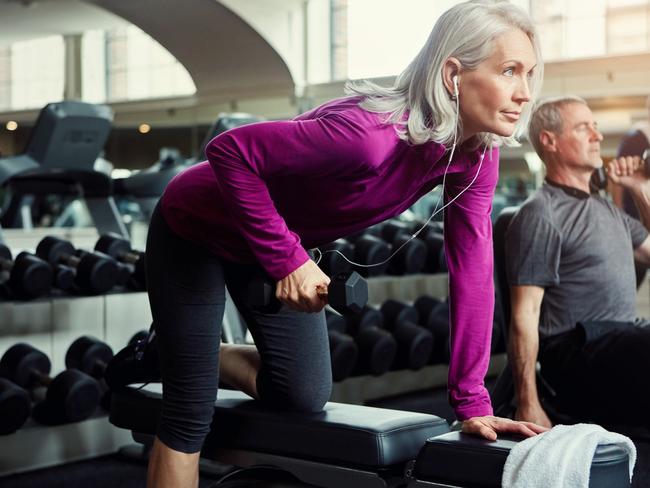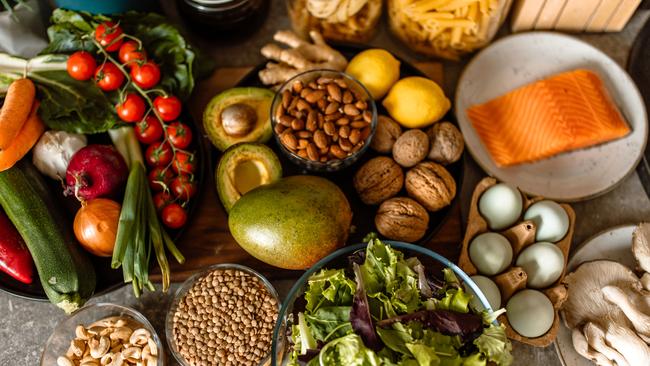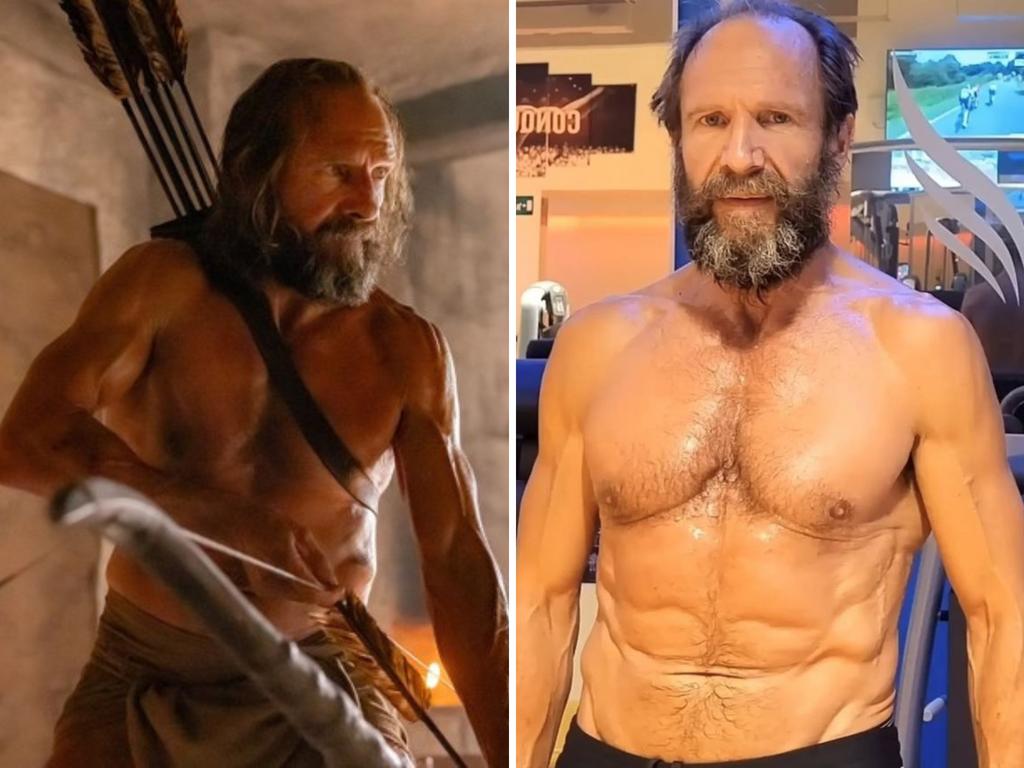Unhealthy habits hit hard after we’re 36. Is it too late for you?
A new study recommends making lifestyle changes in your thirties. But what if you are older?

If you’re reading this while still feeling the effects from a weekend of wine or late nights, chances are you’re over 36. This is the age that Finnish researchers have found unhealthy habits like drinking, smoking or inactivity begin to take their toll on our health.
Writing in the journal Annals of Medicine, the study author Dr Tiia Kekäläinen said the findings highlighted the importance of tackling unhealthy behaviours, “as early as possible to prevent the damage they do from building up over the years, culminating in poor mental and physical health later in life.” These include an increased risk of depression, cancer, heart disease and early death.
“I don’t think it’s a surprise to anyone over 40 that you recover quicker from a weekend of revelry when you are younger,” says Sam Rice, the nutritionist and author of Supercharge Your Diet: Ten Easy Ways to Get Everything You Need From Your Food. “Our bodies slowly become less efficient at metabolising what we eat and drink, so hangovers are worse, and in terms of food this can lead to digestive issues and less efficient absorption of nutrients. Thirty-six may not be the turning point for everyone, genetics also play a part, but our mid-thirties are probably a good time to take stock.”
But what if that ship has already sailed? “If you’re already in middle age, it’s never too late to live well,” Rice says. “For example, a better diet in midlife is strongly linked to a longer health span, which is the number of healthy and active years we have ahead.” Here, the experts tell us how to counter the damage in our forties, fifties and beyond …
Your thirties
“Rather than focusing on specific nutrients in your thirties, it pays to look at the quality and variety of your diet overall,” Rice says. “Cooking simple food at home should be your goal. It’s also a good time to think about brain and heart health, and eating oily fish, avocados, nuts, seeds and olive oil is essential, along with lots of colourful fruits and vegetables.”
Meanwhile, the personal trainer Matt Roberts says our thirties are often the time when bad habits creep in: “I see people who were fairly active in their teens and twenties becoming sedentary in their late thirties, as work and family life take over. They become less active, and then stress-coping habits creep in, like drinking more or relying on junk food, which means they have less energy to exercise.” The answer? “The good news is, if you restart exercise now you’ll stop the rot really quickly. Studies show our bodies respond well at every age to new exercise, and you can improve your heart and lung capacity well into your fifties and sixties. Any kind of activity, from jogging to lifting weights, or Pilates will improve your overall health.”

Lastly, if you smoke, get help to quit now. According to a study published in the British Medical Journal, if you quit by the age of 30 your chance of having a reduced lifespan as a result of smoking are minimal.
Your forties
This is the age to keep an eye on your drinking, according to Karen Tyrell, the chief executive of the charity Drinkaware. “According to our research, those aged between 45 and 54 are the most likely to exceed the UK chief medical officers’ guidelines, which for men and women are drinking 14 or fewer units of alcohol per week.” Tyrell says the health effects of alcohol are accumulative, “so the more often you drink, the greater your risk of certain cancers, and heart and liver disease becomes. However, the same is true in reverse and you can make really good health gains by cutting back at any age.”

She suggests aiming for two to three alcohol-free days a week, but not saving all your units for the weekend either: “Binge drinking affects mood, memory and sleep, and in the longer term leads to an increased risk of alcohol-related cancer and heart disease. Lastly, know your alcohol triggers, be it a bad day at work or a sunny afternoon.”
Diet wise, Rice says as you move into midlife fat naturally redistributes to the middle. “To counteract this, you need to watch your calorie intake, switch to eating more protein and fewer carbohydrates to retain muscle, and eat plenty of fruits and vegetables containing antioxidants, such as leafy greens and berries. This also helps minimise the risk of chronic diseases such as cancer and type 2 diabetes and reduces inflammation.” Roberts suggests doing low-key cardio for 40 minutes about three to four times a week: “This will burn fat, and reduce arterial plaque and cholesterol, and can be anything from a brisk walk to a steady bike ride.”
Your fifties
If you’re not already, now’s the time to lift weights. A study from the University of British Columbia of 3,600 adults over the age of 50 found those with more muscle mass were at a lower risk of death from all major causes. It’s good for our bones too, with a 2017 study published in the Journal of Bone and Mineral Research finding two 30-minute strength workouts per week improve bone density. While a 2021 study from Iowa State University found that two or more weight training sessions a week was enough to reduce a middle-aged woman’s risk of obesity in old age by up to 30 per cent.

Still smoking? If you stop at 50, your risk of dying early as a result of it will be halved, according to the BMJ study.
As for alcohol intake, according to Drinkaware research, those aged 55 to 64 are the second most likely age group to exceed safe drinking limits, so Karen Tyrell suggests checking by having a “drinking MoT” and finding out how healthy your drinking habits are with the charity’s free Drinking Check test.
Your sixties and beyond
“People over 60 are generally less active and more prone to muscle loss,” Rice says. “This reduces their metabolic rate and, with digestion becoming less efficient, more nutrition is required from fewer calories.” Therefore, she says a focus on nutrient-dense foods, particularly those with plenty of protein, such as lean meat, fish, eggs, dairy, beans, nuts, seeds, and plenty of vegetables, is key. “Broadly following the Mediterranean diet is your best bet over 60, but it’s a great diet blueprint whatever your age,” she says. “And a vitamin D supplement is essential, not only for helping with bone density but there are also promising studies showing it may have a role in the prevention of cognitive decline.”

Roberts says fitness at this age is rooted in mobility and flexibility, so try yoga or Pilates. Or even standing on one leg: during one of his podcasts, the doctor turned broadcaster Michael Mosley explained why being able to balance on one leg for short periods was the No 1 predictor of longevity (Mosley would stand on each leg for 30 seconds twice a day). He cited a study published in the British Medical Journal that found the act of balancing is cognitively challenging for the brain, as well as strengthening leg muscles, and improving balance to prevent falls as we age.
Ultimately, Roberts says, the key to healthy ageing is attitude: “Getting old is inevitable, but slowing down and giving in to bad habits isn’t.”
The Times




To join the conversation, please log in. Don't have an account? Register
Join the conversation, you are commenting as Logout